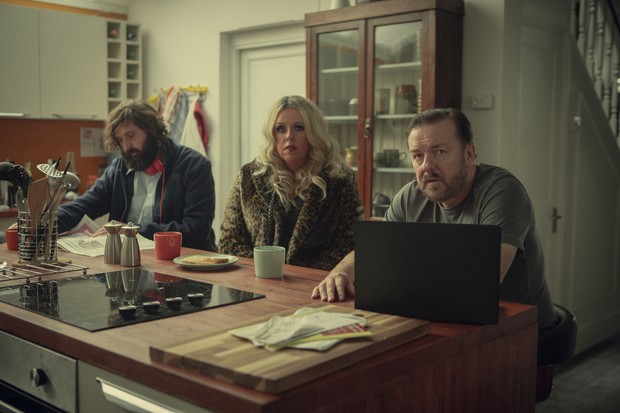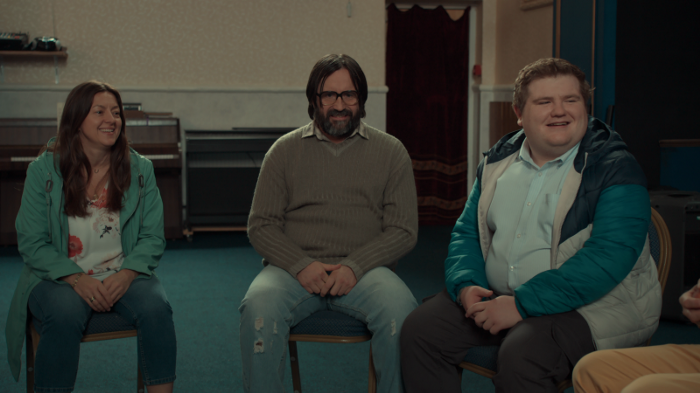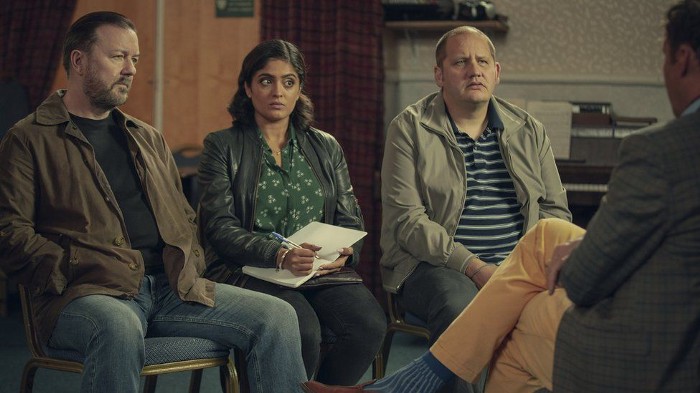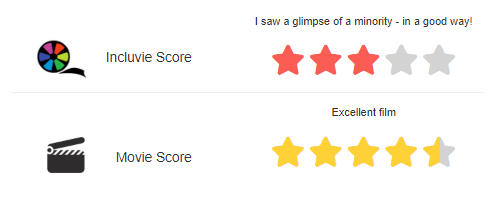Snow White, Rewritten in a Minor Key
Despite the film’s efforts to reframe its heroine with modern complexity, a certain emotional distance lingers.
When you first hear that there is a series on Netflix where the lead character’s wife dies from cancer and he becomes dangerously suicidal, you wouldn’t immediately assume that it’s a comedy. You may even be quick to think that this kind of show shouldn’t be a comedy. With Ricky Gervais’ series After Life — which launched its second season on April 24th — the writer/director/star finds a way to make this show perfectly nihilistic, wonderfully charming, and outrageously hilarious.
I watched the first season a few months back, and fell in love with it. Gervais is such a gifted writer, bringing deep nuance and complexity to these characters and this story. It acts as a drama first, but it is heavily layered with a great amount of comedy that fits in so naturally. The exploration of life after death — what does one do when their reason for living is gone — is so authentic. What truly elevates the season for me is the journey Tony (Gervais) takes in finding his reason for living and the purpose he still has left.
Gervais isn’t as renowned for his dramatic acting, but with After Life, he shows a true vulnerability in his performance. I have a real appreciation for those creative forces who write, direct, produce, and star in their own projects. One of those aspects alone is difficult enough, but to take it all on and to have the final product be as good as it is says a lot about a person’s capabilities. Gervais’ execution of After Life is truly a tour de force on his part.
After I originally saw the first season, I went back and watched more of Gervais’ television work, namely Extras and Derek. I really like these shows, and they demonstrate a consistency in his work. He finds the humor in life and in people, but at the heart of it is the recognition of how precious life and people truly are. It’s that humanity that makes his work extraordinary. Having now watched season two of After Life, I feel confident in saying that I think this is the best work Ricky Gervais has done.

The arc of the first season was Tony beginning at a point where, with his wife having passed, his reason for living was now gone. As he mentions to a character at one point, “I’d rather be nowhere with her than somewhere without her.” Tony has decided that he can live his life doing whatever he wants, whenever he wants, however he wants. If things get out of control, he can simply kill himself, which he refers to as his “superpower.” As the season progresses, he really begins to see the consequences of his actions. He sees that other people are hurting and struggling as well, and they find ways to move forward.
By the end of the first season, Tony has decided he wants to keep living. He wants to move forward and try to be happy. When we find him again in season two, he is struggling with that choice. He is trying to be a good person, trying to make others happy, but it doesn’t alleviate the deep sadness that is still within him. Tony’s personal struggle this season is trying to find a balance between his sadness and his desire for happiness in order to establish a new normal.
One of the best parts about the writing of this series is the side characters. Their quirkiness may initially be seen as mere comedic relief, but we also go deeper into their characters as the show progresses. The more Tony learns about them, the more he learns from them. It is these supporting people in his life that help Tony get through his most difficult time, and realize his reason for continuing to live. Even if he can’t be happy, he can at least try to make them happy.
This season brings back a lot of the great side characters from season one. It fleshes them out more, especially Tony’s postman (Joe Wilkinson) and Roxy, a befriended sex worker. We also get some new characters, such as James (Ethan Lawrence), the son of Lenny’s (Tony Way) girlfriend, who begins working with them at the newspaper. James’ addition injects the right amount of nonsensical hilarity that perfectly contrasts Tony’s deep metaphysical anguish.

One of the things I really appreciate about this show is how it touches on subjects that we don’t often have candid, open discussions about — told through the lens of every day ordinary people. We as a society have a really hard time dealing with the reality and the finality of death. Many people try to distract themselves from this eventuality, while others embrace it. What After Life so brilliantly explores is the pain that death brings. It doesn’t shy away from it or masquerade it; it openly and honestly explores how devastating death can be.
Tony is absolutely shaken to his core by the loss of his wife. He is in pain every second of his life. Every night he sits on the couching drinking wine, watching old home videos from their time together. He tells every single person he knows and interacts with how much agony he is in, and all he wants is to not exist anymore. Tony is speaking what is often left unspoken. It is commonplace in our society to keep our feelings to ourselves, to hide how we feel from the world, and to put on a face of normalcy. Tony calls BS on that.
What I take away from this series is that hiding our depression and suppressing our feelings doesn’t solve anything. We have to be open about our pain and recognize within ourselves that it is okay to hurt. What we do have to find, however, is the balance between accepting that feeling pain is okay and wallowing in it with an inability to move forward. Even if we cannot find happiness in the world anymore, we share this world with other people, and perhaps we can be a source of happiness for them.

In terms of diversity, After Life Season two has room to improve. One of Tony’s central friendships in the show is with Sandy (Mandeep Dhillon), a new reporter at the paper where they work. Their dynamic is great, as Tony becomes almost a mentor to Sandy. At the same time, she helps him grow and learn a few things to help him through his period of self-destruction. With season two, we delve a little bit more into who she is. I found this to be great, as I really like her character and I think Dhillon gives a strong performance.
However, Sandy is really the only person of color in the series. With a third season confirmed, this would be a good opportunity for Gervais to bring some more diversity into the show. Part of keeping the series fresh going forward will be introducing brand new characters, which will ultimately influence and shape Tony’s larger journey. I hope bringing more representation and diversity into the series is something Gervais keeps in mind as he develops the next season.
Overall, After Life is a brilliant show. It takes really deep and complex material, and injects a lot of heart and humor into it. Ricky Gervais’ writing and direction is phenomenal, but he also brings so much to the series with his leading performance. The supporting characters contribute a lot to the show, especially those that are further fleshed out in this second season. I would say I personally prefer season one, but that doesn’t take anything away from how great this second season is. I cannot wait to see what Gervais does with a third season, as he continues his best work yet.

Author: Nathanael Molnar, originally published [08/05/2020]
Related lists created by the same author
Despite the film’s efforts to reframe its heroine with modern complexity, a certain emotional distance lingers.